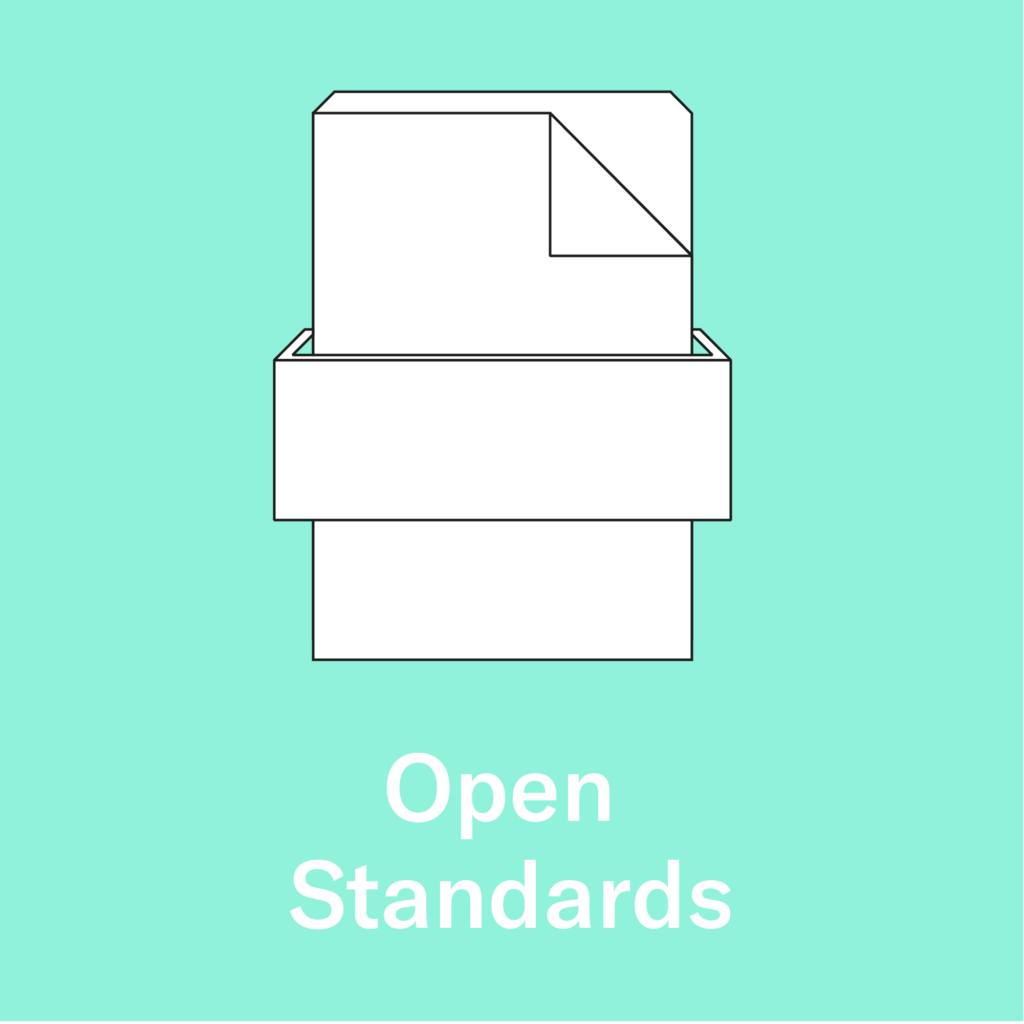Standards should include technical standards for open data, API standards, data security standards as well as legal standards concerning privacy and use licensing. As part of these, open data standards need to be driven by government to ensure interoperability and vendor neutrality. Data standards should set out how data should be structured and formatted and specify procedures for anonymisation, processing and protection. Standards are a core foundation of data governance.
Although standards would be applicable to all aspects of the mobility ecosystem, different transport use cases and scenarios would see different implementation combinations. For example standards for mass public transport data might be for open data, but the standard for door to door journeys by transport service providers anonymised and only shared with specific government authorities. There will be overlap between Standards Developing Organisations including regional consortia, national standardization bodies or associations with their own technical guidelines. The exact scenario will depend on data governance framework applicable and use case.
Alongside data standards, open application programming interfaces (APIs) enable interoperability between data and different services. APIs make a dataset understandable by applications or websites.
To create an open ecosystem, Mobility as a Service platforms and solutions need to use open, non-proprietary APIs and data formats.
Projects that incorporate open API standards include the Open Mobility Foundation’s Mobility Data Specifications (MDS) [1] in the United States. In Europe OASC (Open & Agile Smart Cities) [2] minimal interoperability mechanisms, CitySDK (City Service Development Kit) and 6Aika and bIoTope, developed as part of an EU (Horizon 2020) project. [3] More broadly, FIWARE is software technology and open APIs developed under EU funding to provide a universal set of standards for context data management for access to information coming from any potential data sources in a city, including mobility. [4]
Best practice: [1] Open Mobility Foundation [2] Open & Agile Smart Cities (OASC) Minimal Interoperability Mechanisms [3] Harmonised Smart City APIs. A CookBook for Cities. City SDK and 6aika APIs [4] The bIoTope Project
